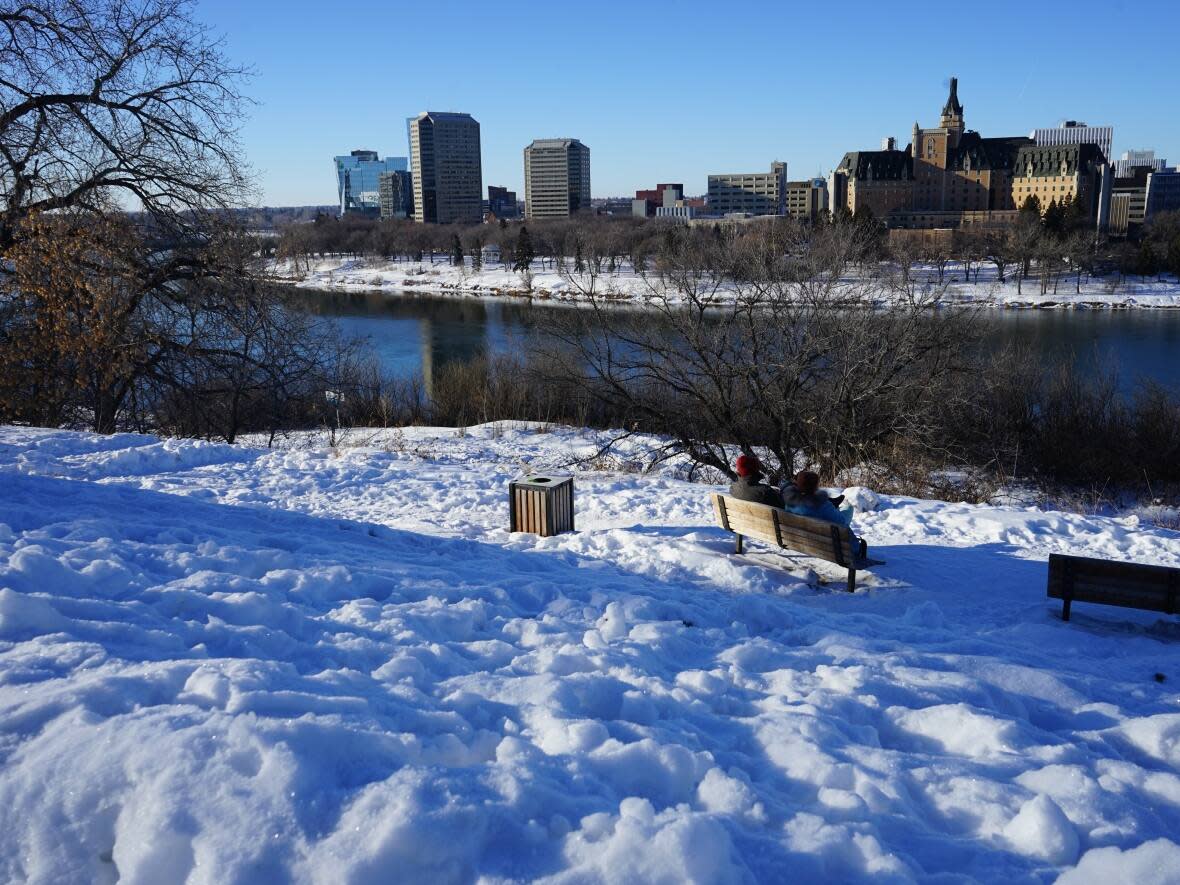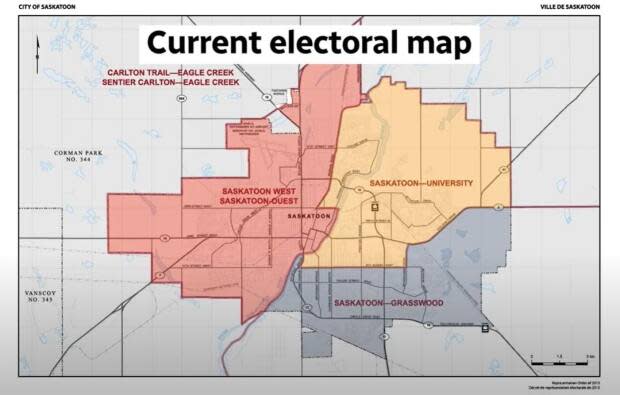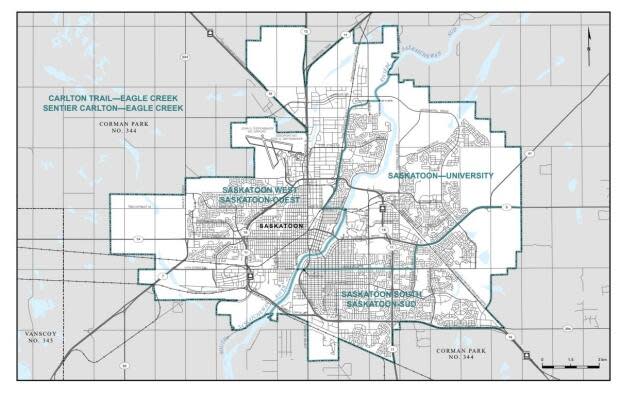Saskatoon not getting a new federal riding, electoral commission reverses initial proposal

The electoral boundaries commission has recommended Saskatchewan's federal riding map remain largely unchanged, pivoting from an earlier suggestion to create a new riding in the centre of Saskatoon.
The Federal Electoral Boundaries Commission for Saskatchewan released a report of proposed changes to the federal boundaries. The changes included the creation of a new riding, Saskatoon Centre, which would give the city four ridings.
However, when the commission's final report was tabled in the House of Commons earlier this month, the new riding had been wiped off the map and the changes were relatively minor in comparison.
"The changes that are in the final report are less significant than we saw in the preliminary report, especially when it comes to the changes that are going to be made to Saskatoon. Instead of creating an urban riding in the centre of the city, it's going to be more or less the same map," said Éric Grenier, creator and publisher of the online political site The Writ.
"The Saskatoon Centre riding that was proposed would have been a very core urban riding."
The three Saskatoon ridings will look slightly different with boundary tweaks and a new name for Sakatoon-Grasswood, which will become Saskatoon South.
"[The commission] seems to be pretty concerned with sticking with municipal boundaries, which is something they don't necessarily have to do," Grenier said, "so they did make this choice. They got a lot of feedback from people and they have to pay attention to that."

Following the release of the preliminary report, the commission sought feedback during hearings in June and July before submitting its final report.
The final report says it heard submissions both for and against the proposed new Saskatoon Centre riding.
It says people cited the "South Saskatchewan River as a historic and natural boundary for electoral ridings. In opposition to the Saskatoon Centre proposal, it was consistently suggested that, for better or for worse, the river continues to influence travel and commercial and social activity in the city and the suburbs."
The report says opponents of the proposal "emphasized the significant economic and social differences that exist between the neighbourhoods on the western and eastern sides of the proposed riding."

Grenier says the commission does not "make partisan choices, they make choices based on what people are saying."
"It would have been interesting to have an explicitly urban riding in the middle of Saskatoon, which would have given the NDP a much better chance of winning it because that riding more or less gathered all the NDP voters in one riding," he said.
"But we saw in 2015 the NDP and the Liberals with Ralph Goodale were able to win ridings in urban centres in Saskatchewan. So it's not the map that is causing them to get shut out. It's not helping, but they do have the ability to perform better if they get more support.
"But the new map that is going to be proposed is not going to help them in urban areas."
Meadow Lake to be moved
Grenier says the decision not to create a new riding has "ripple effects" with boundary changes to other ridings.
"We'll end up with a map that, in southern Saskatchewan, isn't very different from what it was before," he said.
The most notable change to the map is the commission's proposal to move Meadow Lake from the northern riding of Desnethé-Missinippi-Churchill River into the Battlefords-Lloydminster riding.
This riding will now be "very hard for the Conservatives to win," Grenier said.
"With the removal of Meadow Lake, the Conservatives have lost almost half of the vote that they had in that riding."
If the map had been in place in 2021, Grenier says, the Liberals' Buckley Belanger would have defeated incumbent Conservative MP Gary Vidal.
In 2019, he added, the seat would have been won by the NDP's Georgina Jolibois.
"So what these changes mean is that the riding is just harder for the Conservatives to win, and whoever can garner the non-Conservative vote between the NDP and Liberals is now the party that would be favoured to win this riding going forward."
The commission says the riding is one of the biggest in the country geographically, its population spread over that large distance. The riding, which formerly covered 55 per cent of the province, has been reduced slightly.
"[The riding] occupies 50 per cent of the landmass of the province and is 5.13 times larger than the second largest electoral district of Kindersley-Rosetown," the final report says.
The change affects the riding of Battlefords-Lloydminster, which will absorb the city of Meadow Lake and be renamed to Battlefords-Lloydminster-Meadow Lake.
To achieve population parity with other ridings the commission says it decided to expand the riding: "The most obvious choice is to proceed north for Battlefords to be joined again with Meadow Lake, which, given the demographics of the two areas, represents a good community of interest."
It says the configuration was in place before changes were made in 1994.
The commission noted that the sitting MP for Desnethé-Missinippi-Churchill River opposed the change.
Report to be reviewed
The commission says it sought input from more than 300 groups, individuals and organizations.
"The Commission is satisfied that it has balanced its statutory obligations with the views of the people of Saskatchewan in striving for the goal of effective representation," said Justice Georgina Jackson, chair of the three-member commission.
The report has been tabled in the House of Commons and will be reviewed by the House of Commons Sstanding committee on procedure and house affairs. Members of parliament can submit objections to the changes from now until May 2023. The earliest the changes could be in place is April 2024.


